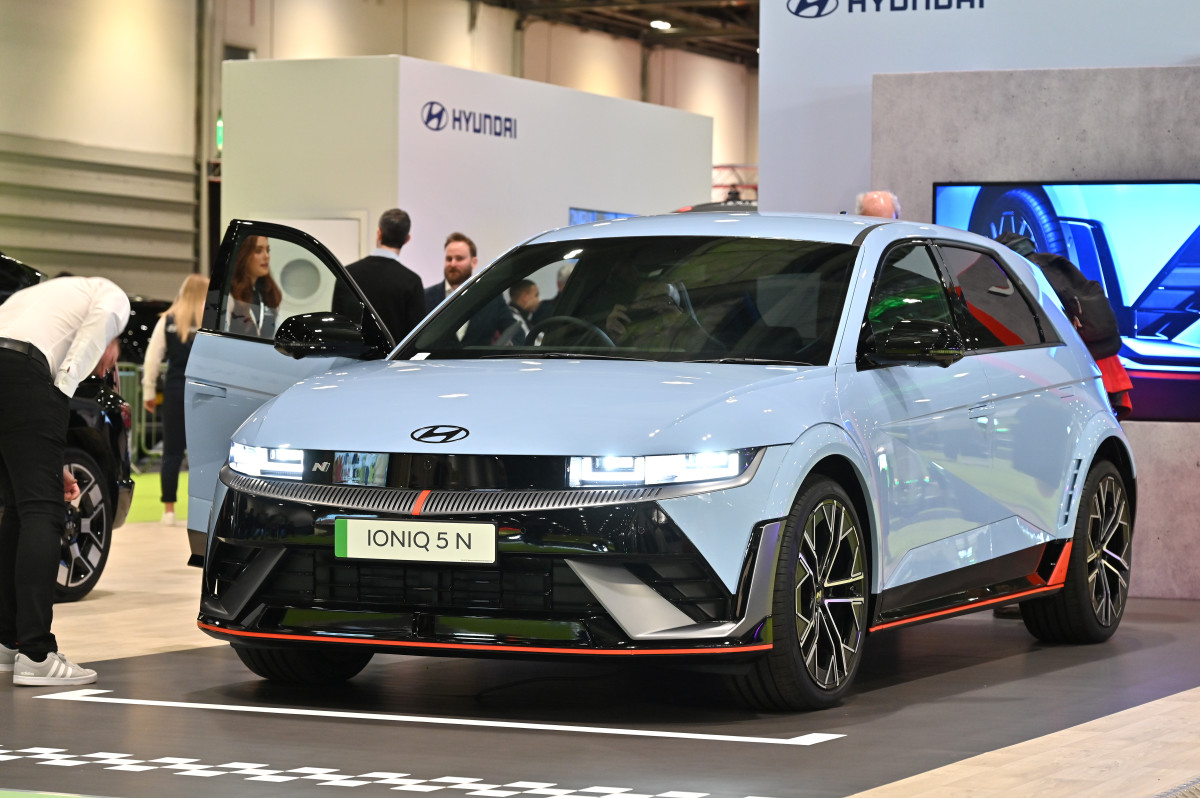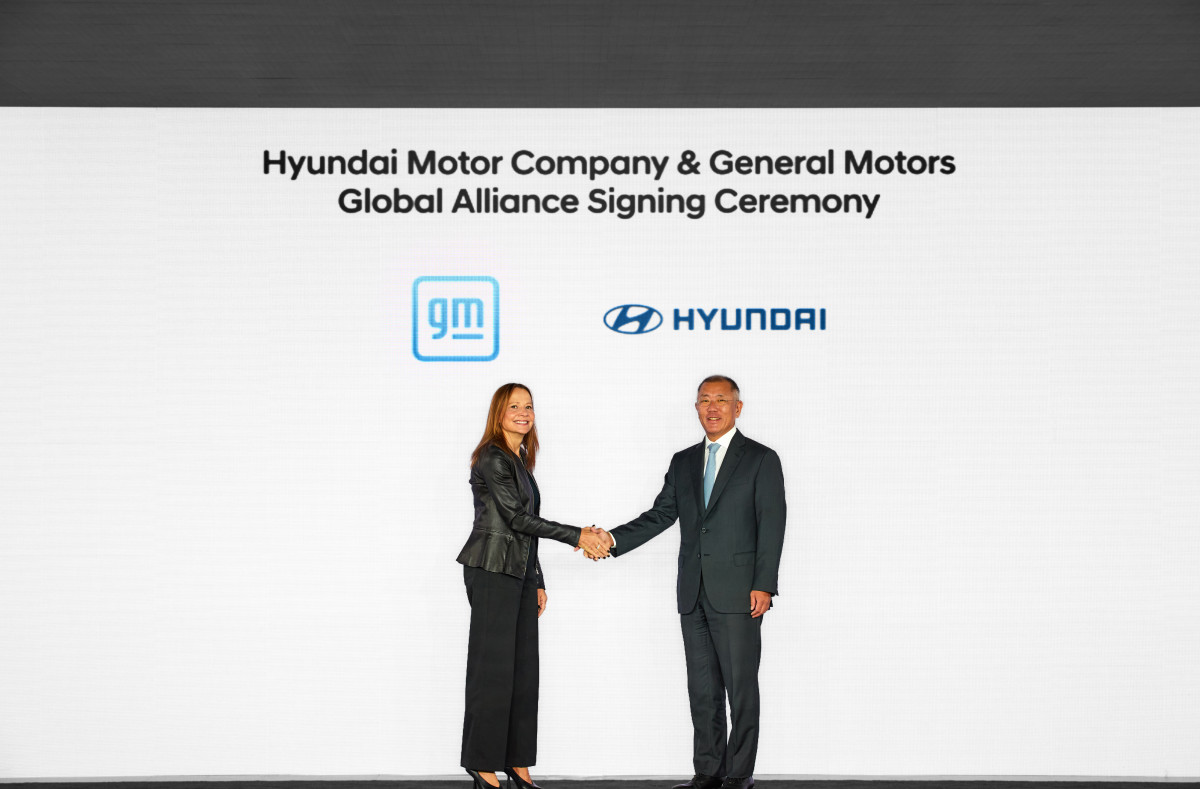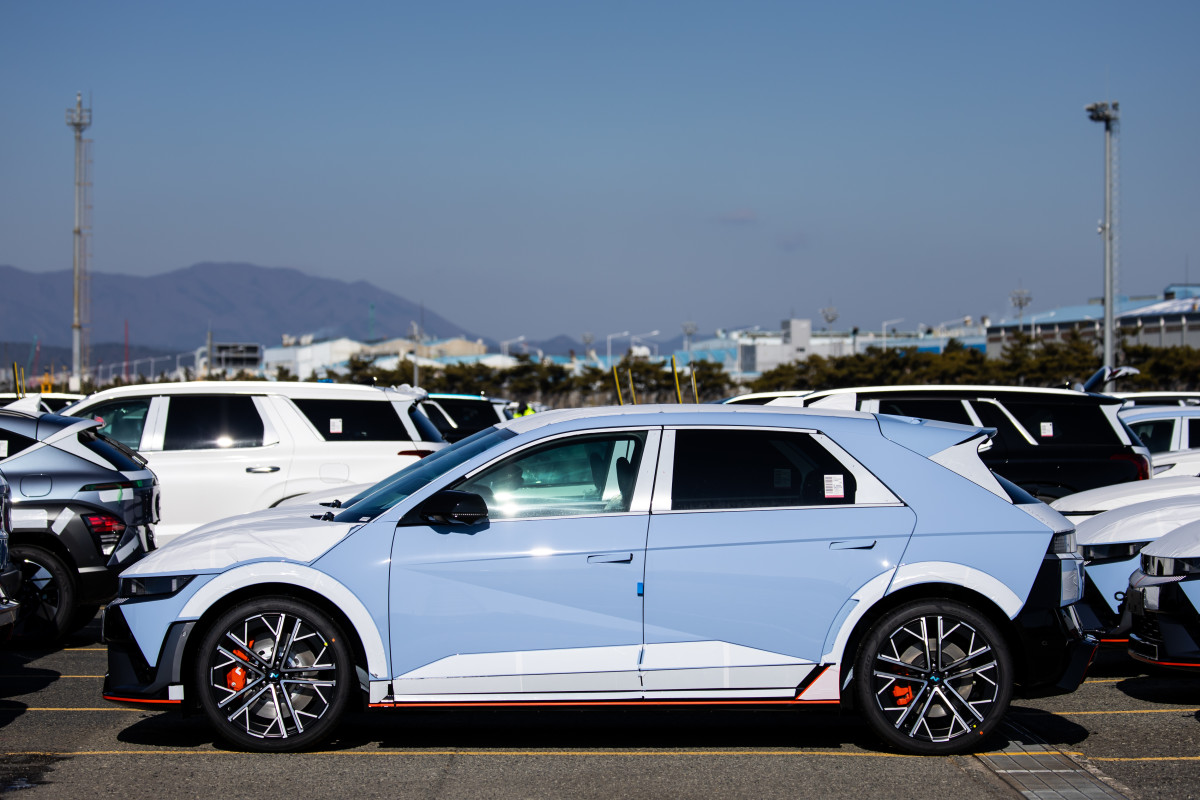
If a few words can describe what has been going on with the automotive world in 2024, they would be alliances and partnerships.
It seems like every car company is joining together. Last month, a new partnership between Nissan, Mitsubishi, and Honda was forged amidst criticism from a former executive.
Related: BMW, Toyota take a risky gamble on a failing product
Toyota is a case study in partnerships and alliances. In May, Toyota, Mazda, and Subaru teamed up to save gas-powered combustion engines, and it renewed a partnership with Subaru for future development of electric vehicles.
Additionally, Toyota is teaming up with BMW on a zero-emissions fuel-powered vehicle that is seen as an alternative to EVs.
However, a new partnership sees two huge automakers collaborate on future vehicles.

Hyundai
The new Hyundai and GM alliance
In a statement released on Sept. 12, General Motors (GM) and Hyundai (HYMTF) announced that the two automakers had signed a nonbinding "memorandum of understanding" that would establish their collaboration on new vehicles made using more efficient supply chains and shared technologies to reduce costs and development time.
Though details are scarce on how the collaboration will work, the duo said they will work on future passenger cars and commercial vehicles powered by internal combustion engines, EVs, and hydrogen power.
In a statement, GM CEO Mary Barra said the collaboration "has the potential to make vehicle development more efficient by driving greater scale and supporting disciplined capital allocation."
“GM and Hyundai have complementary strengths and talented teams. Our goal is to unlock the scale and creativity of both companies to deliver even more competitive vehicles to customers faster and more efficiently,” said Barra.
More Business of EVs:
- Waymo finds new way to bring chaos to quiet city streets
- Gavin Newsom's 'EV mandate' is under U.S. Supreme Court threat
- BMW's clever, new EV app is a privacy nightmare
Hyundai and GM noted that the partnership will also enable the two to share resources in critical materials such as raw materials for EV batteries, steel, and other areas needed to build cars.
“This partnership will enable Hyundai Motor and GM to evaluate opportunities to enhance competitiveness in key markets and vehicle segments, as well as drive cost efficiencies and provide stronger customer value through our combined expertise and innovative technologies,” said Chung.
The duo noted that after signing their nonbinding agreement, Hyundai and GM will immediately begin exploring possible areas of cooperation that will be solidified in a future binding agreement.

A new path to an electric future
The partnership between GM and Hyundai is not entirely one-sided, as the duo already have an advanced level of expertise represented by their current offerings.
Although both GM and Hyundai have separately announced in prior statements that they are rethinking EV development in favor of hybrid technology, the duo already offers many electric vehicles in their current lineups.
The namesake brand's Ioniq series of vehicles highlights Hyundai's offerings. Its latest iteration, the updated 2025 Hyundai Ioniq 5, features Tesla-rivaling electric range in an attractive package and can be charged at Tesla Superchargers.
Likewise, General Motors also offers similar EVs but has an advantage over Hyundai. The batteries underpinning the automaker's Ultium platform are manufactured in the United States, deeming the cars eligible for the $7,500 IRA tax credit. Additionally, the firm is in talks with CATL on advanced battery technology.
Related: Hyundai's latest EV is a threat breathing down Tesla's neck
But as the EV slowdown becomes apparent and sales of hybrid-electric vehicles are prioritized, Hyundai can share technology that it sees as "a key bridge to full electrification:" extended-range electric vehicles (EREVs).
These novel vehicles incorporate electric motors, a battery pack, and a small combustion engine that serves as a power generator. The combo allows both refueling with gas and traditional EV charging, but it delivers more than 560 miles (900 kilometers) of range, reducing its dependency on the already-strained charging network and away from the perils of the infamous "charger hogs."
In a previous statement to Korea JoongAng Daily, a senior Hyundai executive said that automakers are currently experiencing "suffering" that can be solved by providing a diverse range of electrified vehicles.
“Global automakers will enter a period of suffering for at least two to three years starting in the second half of this year,” the official told the South Korean publication. “Hybrids and EREVs are our weapons to fight this battle.”
Hyundai Motor (HYMTF) shares were down 1.46% from the opening bell at $61.59 at last check. General Motors (GM) is up 2.56% at $45.80 at last check.
Related: Veteran fund manager sees world of pain coming for stocks







